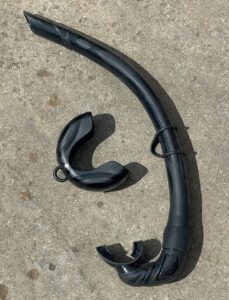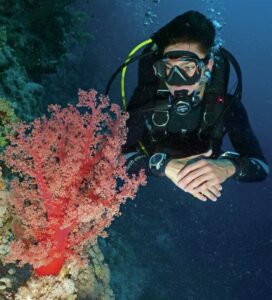Our medical staff often receive questions on whether diving while taking a particular medication is safe. Even though there is not a straightforward answer to this question, here we provide some valuable indications.
DAN (as any other medical organisation) does not keep a repository of data on how medications are affected by the diving environment. No formal research trials about the influence of drugs on human divers in an underwater environment can be conducted out of ethical concerns. Anecdotal reports of dive accidents are of limited value in assessing whether diving is safe while taking a particular drug. Several physical and physiological factors are always involved, so it is difficult to isolate a single variable.
However, by considering elements such as the medical condition being treated, the physical demands on divers while underwater, and known facts about a drug from clinical trials conducted on land, sound advice can be provided about the suitability of diving while taking medications.
General considerations
Most divers asking DAN advice about medications and diving are concerned about new side effects occurring at depth. Certain drugs might potentiate (enhance) or be potentiated by the narcotic effect of nitrogen. A diver should consider this possibility if planning to dive deeper than 24m while taking a drug that warns against drinking alcohol or operating heavy machinery. Aside from this theoretical concern, most drugs are not suspected of incurring specific biological hazards due to immersion, pressure or breathing-gas mixture. It is understandable for divers to be apprehensive about new side effects occurring during a dive. Still, the more critical issue to medical professionals is whether the underlying medical condition might make diving less safe. The injury or illness treated is much more likely than the medication to exclude someone from diving.
Reduced physical fitness is not uncommon among people treated for medical conditions. Although diving is a relaxing activity for most recreational divers, lifting and wearing heavy equipment and entering and exiting the water can cause fatigue. Divers should always have sufficient physical capability to fight currents, perform a long surface swim or help a buddy in an emergency. They should not be at increased risk of barotrauma due to congestion and should not have symptoms such as numbness, tingling or pain that might be confused with decompression sickness (DCS) after a dive.
Furthermore, it is essential to consider whether a diver has experienced any side effects from a medication, how long they have been taking it and what other drugs the diver is taking. Before diving, while taking a particular medicine, the person should have experience with it on land. For most prescription medications, 30 days is recommended to ensure the dosage is correct and reveal any side effects the diver is likely to experience. At least one doctor should be aware of all medications an individual takes to minimise the risk of drug interactions. A diver who experiences side effects that could cause distraction or decreased awareness underwater should not dive.
These are general considerations, but there are also some specific questions and points for discussion relevant to particular types of medications, which divers should address during the physician's evaluation and in the diver's self-assessment.
Medication and Diving
Orthopaedic pain medications and muscle relaxants
• Could pain or impaired mobility cause distraction or physical limitation during a dive?
• Might heavy dive gear exacerbate an injury?
• Could side-effects of prescription-strength pain relievers diminish a diver's alertness or awareness?
• Might soreness, numbness or tingling be confused with DCS after diving?
Neurologic drugs
• Are the diver's physical capabilities diminished?
• Has the diver ever experienced a seizure?
• Could any drugs the diver is taking cause side effects that might be confused with DCS?
Psychiatric medications
• Might symptoms or a drug's side effects impair judgment, behaviour, awareness or ability to handle stress?
• Is the patient's condition managed successfully or in remission?
Gastrointestinal drugs
• Is the patient at risk for gas trapping that could cause barotrauma on ascent?
• Is the diver dehydrated due to vomiting or diarrhoea?
Cardiovascular drugs
• Does the patient have the cardiovascular health and exercise capacity to dive safely?
• Is a stress electrocardiogram (EKG) needed to confirm good cardiac fitness?
Respiratory medications, including inhaled corticosteroids
• Is there any reason to suspect air trapping or impaired breathing ability while diving?
• People with asthma should undergo an exercise challenge test, consisting of pulmonary function testing before and after exercise in a clinical setting.
Decongestants, antihistamines and intranasal steroids
• Is the diver congested (and at increased risk of barotrauma)?
• Have they been congested recently?
• If the medication wears off at depth, will it cause a problem?
• How might the potential sedative effect of antihistamines affect the diver?
Hormones, insulin and medications used to treat diabetes
• Are the patient's hormone levels stable and close to normal?
• Is the diabetic diver at risk for hypoglycemia with exercise?
• Divers with diabetes must have good health and fitness and be experienced in managing blood glucose levels while exercising.
Antibiotics
• Does the patient have an illness or infection that might be complicated by diving?
Chemotherapy drugs
• Is the person physically fit to dive?
• Lung cancer warrants particular consideration.
• Medical ports are generally not a problem, but they should be padded well.
Divers should consider these points in the context of the medical condition's symptoms and the side effects of any drugs used to treat it. The focus should be on whether any of these factors might impair a diver's physical capabilities, awareness, reaction time or judgment. This list is by no means exhaustive, but it highlights some of the concerns that accompany certain medical conditions and the drugs used to treat them. Any medical condition or medication should prompt a diver to seek a physician's approval before diving. As always, DAN is available to discuss the relevant concerns of injuries, illnesses and the medications used to treat them. If you have questions, email DAN at: medical@daneurope.org
You can see more content from Dan Europe from their regular column, or check out the DAN website for more information about medical advice and diver insurance.








